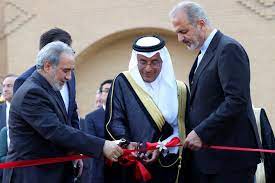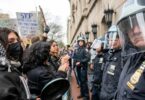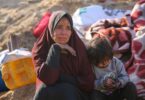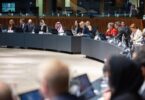Dr. Majid Rafizadeh
The latest developments in the Middle East reveal a new trend: The region has been changing into a more stable and prosperous place due to the fact that diplomacy has taken a front seat. This significant shift ought to be supported by the major world powers and the wider international community.
Between 2000 and 2020, the Middle East witnessed several major conflicts, increased instability and widespread insecurity. The US invasion of Iraq triggered years of domestic war in Iraq between terror groups and sectarian militias. This caused tensions between other states and nonstate actors in the region. The civil war in Syria also turned many groups against each other. These events tipped the fragile balance of power between countries in the Middle East. In such a conflict-driven era, military options appeared to be the only path to winning the battles. But as the evidence of the last two decades shows, militarization, political polemics and support for proxy groups not only do not resolve tensions, but they also further destabilize the region and make it more insecure for everyone. But this trend began changing after the Gulf nations took a powerful leading role in attempting to stabilize the region and bring peace and security through diplomacy and dialogue. This diplomatic mission was firmly supported and advanced by Saudi Crown Prince Mohammed bin Salman, who prioritized bringing peace to the Middle East, enhancing regional security and bringing about a peaceful environment in which everyone could prosper.
It is important to point out that diplomatic initiatives and de-escalation strategies tend to succeed when they are accompanied by strong incentives, which are offered to the involved parties. These incentives can be political and/or economic. One of the latest examples was the decision of the Gulf nations – particularly Saudi Arabia – to give diplomacy a chance when it comes to ties with the Iranian government. Although China brokered the recent Saudi-Iran agreement, the significant role that the Kingdom played should not be disregarded.
Jon Alterman, director of the Middle East Program at the Center for Strategic and International Studies, pointed to this fact when noting: “By paying so much attention to China, Americans risk missing the most important part of this agreement: the changing regional role of Saudi Arabia. A week of smoothly integrated diplomacy not only showed Saudi Arabia to be a skillful diplomatic actor, but also a creative one. The popular image of Saudi Arabia in the United States is that of a largely passive consumer of US-provided security. With the agreement, Saudi Arabia cast off the passivity of many decades, and demonstrated it is a diplomatic force to be reckoned with.” Another diplomatic move was initiated toward Syria last month. The Arab League readmitted Damascus, ending its decade-plus suspension. According to the Saudi Foreign Ministry, the objectives of the move were laid out by the Arab League’s foreign ministers, who “consulted and exchanged views on the efforts made to reach a political solution to the Syrian crisis that ends its repercussions and preserves Syria’s unity, security, stability, and Arab identity; returns it to its Arab surroundings, to achieve the good of its brotherly people.”
The international community has already witnessed some of the positive consequences of these latest diplomatic moves. According to The Wall Street Journal, the Iranian government has agreed to stop arming the Houthis. Security in the region has also been enhanced, as tensions between Tehran and the other Gulf states appear to have eased. Following the Saudi-Iran rapprochement, the Iranian government is improving its ties with states such as Bahrain. The Gulf nations’ emphasis on diplomacy and conflict mitigation, along with de-escalation, has even been seen beyond the region. For example, Saudi Arabia and the UAE last year played a major intermediary role in facilitating an exchange of prisoners between the US and Russia. In a joint statement, the Saudi Ministry of Foreign Affairs and its UAE counterpart announced the success of efforts that led to the release and exchange of two prisoners, one of which was US basketball star Brittney Griner. A lack of dialogue and diplomatic relations between countries can have unintended consequences, such as exacerbating mistrust and causing misunderstandings, tensions, conflict or even wars. And some diplomatic attempts may work for a period of time and then fail. For diplomatic initiatives to last and be sustainable, they should help not only those on the state level who negotiated and made the deals, but also – and more importantly – ordinary people. When ordinary citizens witness the benefits of diplomacy, de-escalation and conflict mitigation, rapprochements are more likely to be sustained and successful.
This is why it is critical for the wealthier countries in the Middle East to invest in other countries in the region. The economic benefits of having good relationships and diplomatic ties with other countries, particularly neighbors, are countless. For example, stable nations can attract more investments and visitors, significantly contributing to their economic development and providing revenue for ordinary people, along with small, medium and large businesses alike. In a nutshell, diplomacy is the key to de-escalation, enhancing Middle Eastern stability and security and making the region safer and more prosperous for all nations. Economic and political incentives are the core pillars of successful, effective and sustainable diplomatic initiatives.







